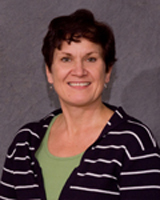In 1989, Bruce Walker, an infectious disease specialist at Massachusetts General Hospital, sifted through a tall stack of applications for a technician’s job in his lab. He immediately noticed the application from Alicja Trocha, a recent immigrant from Poland who had joined the anti-Communist Solidarity movement as a student in the 1980s. Trocha had worked in a lab on the rabies virus—like HIV, a deadly pathogen. She had earned a veterinary degree. And she had done field work with farmers, suggesting a level of real-world maturity not always seen in hot-housed science majors.
Walker interviewed Trocha in German, which she had picked up in an internment camp in Munich after fleeing Poland in 1986. Immediately impressed, he offered her the job. But Trocha, overwhelmed by Walker’s laboratory operation and by the technical terms she would need to master, initially declined. He persisted, and the result has been a professional match made in heaven.
“Alicja has been invaluable to my career,” says Walker. “There is nobody in the world who can clone T cells better, and as my lab manager she has not only set the highest standards for performance and integrity but has done it in the most collegial way.”


 Ragon Institute
Ragon Institute 

